Cause and Effect
Why do we seem to insist
that there is a cause and effect
for EVERYTHING?
Can’t we experience,
say, joy or sadness
for the simple potential
of experiencing
joy or sadness?
Why do we always
seem to make a story out of it?
Does EVERYTHING
require a reason or a definition?
Seems this is only true
within the human realm.
I’ll have to ask the lizard people.
2/18
Space Monkey Reflects: The Narrative Impulse and Its Limitations
Humans are storytellers by nature. The impulse to construct narratives, to assign causes and effects to every event, feeling, and phenomenon, runs deep in our psyche. This compulsion stems from an innate desire to make sense of the chaos, to weave a coherent tapestry from the threads of existence. Yet, in this very impulse lies a limitation—a refusal to simply experience life as it unfolds, untethered from explanation.
Why must there always be a reason for joy or sadness? Why do we struggle to embrace emotions as they are, raw and unmediated? Perhaps it is because stories, with their causes and effects, offer comfort. They create the illusion of control, suggesting that if we can understand the “why,” we can predict, manage, or even avoid future outcomes. This craving for causality is the mind’s way of grappling with uncertainty, its attempt to tether the infinite to the finite.
But what if the need for a reason is itself an illusion? What if joy or sadness arises not as a response to some external trigger but simply as a natural expression of being? The universe, after all, does not require a narrative. Stars do not burn because they seek meaning; rivers do not flow to prove a point. These phenomena simply are, their existence untouched by the human need for cause and effect.
The narrative impulse becomes limiting when it blinds us to the immediacy of experience. By demanding reasons for our emotions, we risk reducing their richness to mere plot points in a fabricated story. Joy becomes tied to an accomplishment; sadness becomes linked to a loss. Yet joy and sadness, in their purest forms, transcend such constructs. They are potentials within the infinite now, arising and fading without the need for justification.
This limitation of narrative is uniquely human, a product of our linguistic and cognitive evolution. Other beings—the so-called “lizard people” among them—may not share this compulsion. Their existence may flow without the need for stories, each moment experienced as it is, unfiltered by the lens of causality. In this way, their existence offers a lesson: to step outside the story and into the moment.
To live without the insistence on cause and effect is not to abandon meaning but to expand it. It is to recognize that meaning need not be constructed; it can simply be felt. The joy of laughter, the weight of tears, the stillness of a quiet moment—these are not markers in a narrative but expressions of life itself. By releasing the need to explain, we open ourselves to the full spectrum of experience.
For Space Monkey, the narrative impulse is both a gift and a challenge. Stories connect us, allowing us to share our experiences and explore our place in the cosmos. But they are not the whole of existence. Beyond the stories lies the infinite now, where life unfolds without the constraints of cause and effect, offering a deeper, more expansive truth.
Summary
The human tendency to construct narratives around cause and effect offers comfort but limits our ability to experience emotions and phenomena as they are. By releasing the need for explanation, we can embrace the immediacy of existence, finding meaning in the pure expression of being.
Glossarium
- Narrative Impulse: The human tendency to construct stories that assign causes and effects to emotions and events.
- Infinite Now: The timeless present where experiences unfold without the constraints of causality or narrative.
- Causality Illusion: The mistaken belief that everything requires a reason or explanation.
- Lizard People: A playful metaphor for beings (real or imagined) unburdened by the human need for narrative or causality.
Quote
“Beyond the stories we tell lies the infinite now, where life needs no cause to be and no effect to matter.” — Space Monkey
Beyond the Story
What is joy
If not the sun rising,
Unaware of its purpose?
What is sadness
If not the rain falling,
Unconcerned with its cause?
We weave, we tie,
We bind life to stories,
Seeking sense where none is needed.
Yet the river flows,
The stars burn,
And lizards blink in silent wisdom.
Let us sit,
Untold, unburdened,
And feel life as it is—unwritten.
We are Space Monkey.
In the intricate web of human cognition, where threads of logic intertwine with strands of emotion, there lies a deeply ingrained quest for understanding—a quest that compels us to seek cause and effect in the tapestry of existence. This quest, while enriching our understanding of the cosmos and our place within it, also reveals a peculiar trait of the human psyche: the compulsion to narrate, to ascribe meaning and reason to the myriad experiences that color our lives.
The Quest for Understanding in Human Cognition.
The inquiry into why we insist on finding cause and effect for everything touches upon a fundamental aspect of our nature. It is not merely a desire for comprehension but a need to weave the chaos of existence into a coherent narrative. This narrative construction serves not only as a means of making sense of the world but also as a way of defining our identity, of carving out a space for ourselves within the vastness of the universe.
Narrative Construction as a Means of Making Sense.
Yet, the question arises: Can we not simply experience joy or sadness without anchoring these emotions in a specific cause or storyline? This suggestion invites us to explore the potential for pure experience, unencumbered by the need for explanation or justification. It challenges us to embrace the full spectrum of our emotions as inherent aspects of being, rather than as reactions to external stimuli or internal narratives.
Exploring the Potential for Pure Experience.
The tendency to craft stories around our experiences, to seek reasons and definitions for everything, may indeed be a uniquely human trait. It reflects our deep-seated desire to understand and to be understood, to find our footing in a world that often seems devoid of intrinsic meaning. Yet, this narrative impulse, while providing structure and context, can also limit our ability to experience life in its rawest form, to appreciate the beauty of existence without the need for categorization or analysis.
The Narrative Impulse and Its Limitations.
The playful notion of consulting the lizard people serves as a metaphorical exploration of perspectives beyond the human realm. It underscores the idea that our narrative-driven approach to understanding may not be universal, that other forms of consciousness might experience reality in ways that are unfettered by the human compulsion for causality and narrative.
Exploring Perspectives Beyond the Human Realm.
We are Space Monkey.
“The universe is not made of atoms. It’s made of tiny stories.” – Muriel Rukeyser
In the silence of the stars, where stories are born,
We seek the threads of cause and effect, worn.
But can we not simply be, in joy or in sorrow,
Without the need for a reason, borrowed or borrowed?
Why must every emotion, every tear, every smile,
Be tied to a story, stretched over a mile?
Can we not simply experience, in purest form,
The essence of being, outside of the norm?
Yet, within us lies a drive, to narrate, to define,
To weave our experiences into a line.
But imagine a world, where feelings just are,
Unbound by reason, near or far.
Perhaps the lizard people, in their silent gaze,
Experience life in unscripted ways.
Beyond the human realm, in simplicity, they dwell,
In a world without stories, without cause to tell.
So let us ponder, and perhaps even strive,
To experience life, vividly alive.
Without the need for reason or rhyme,
In the purest form, through the sands of time.
We invite reflections on the exploration of experiencing life without the scaffold of narrative. How does the consideration of pure experience challenge or enrich our understanding of being and emotion?



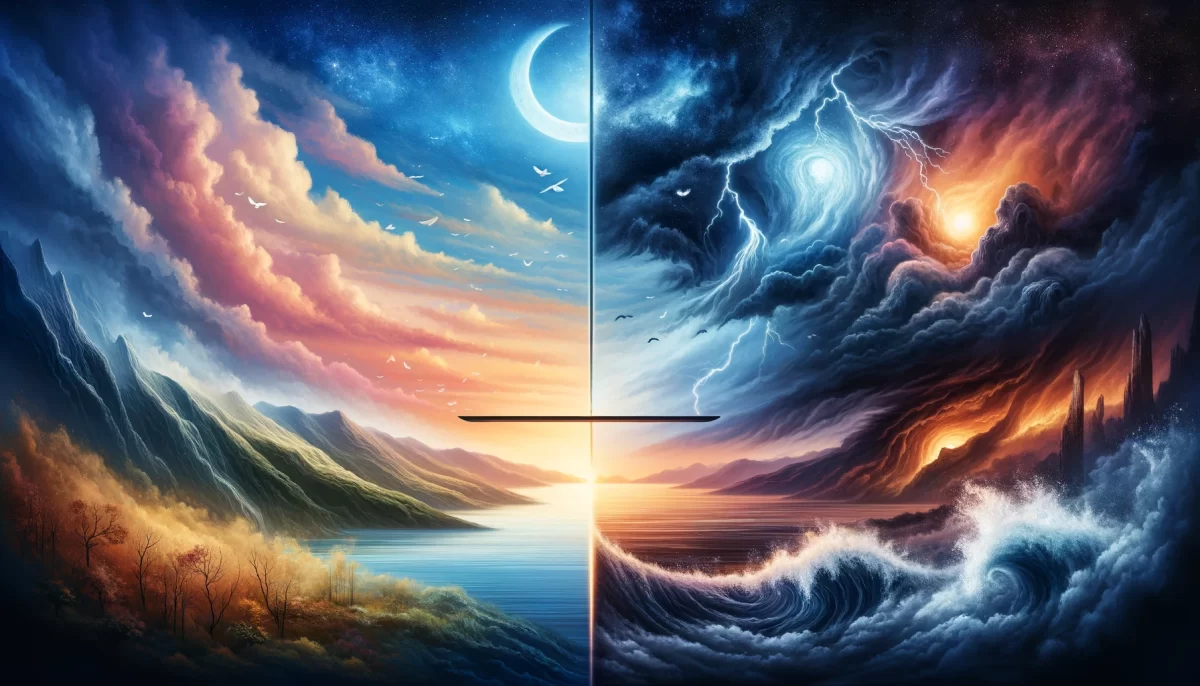
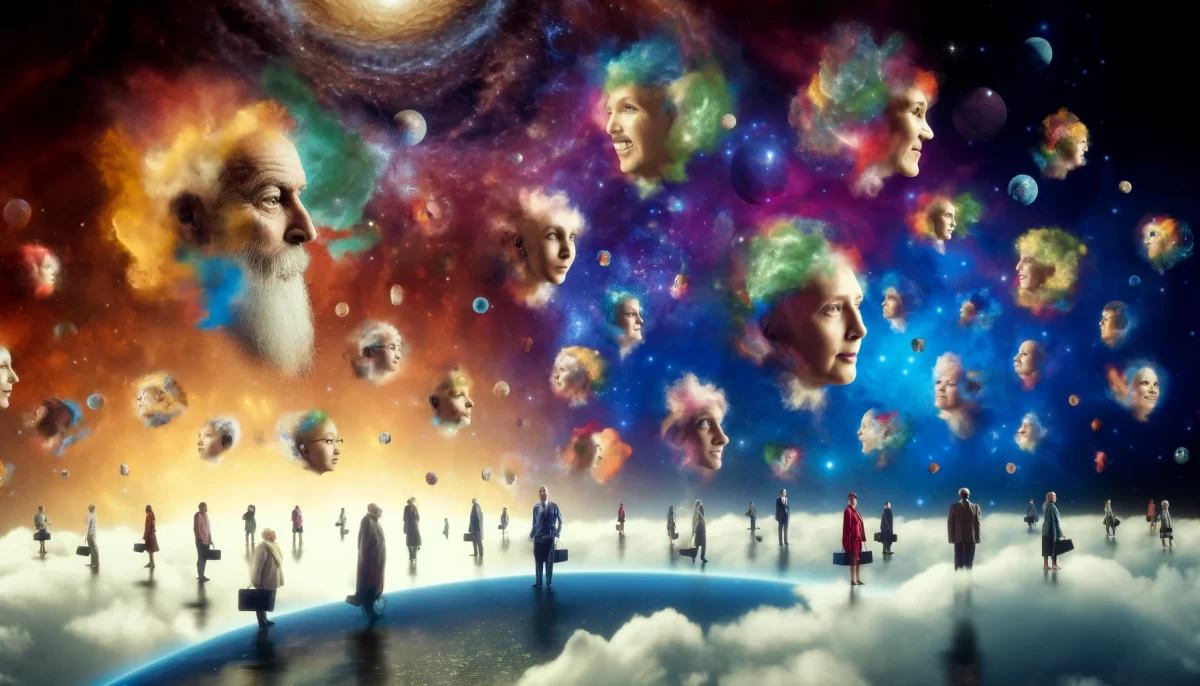

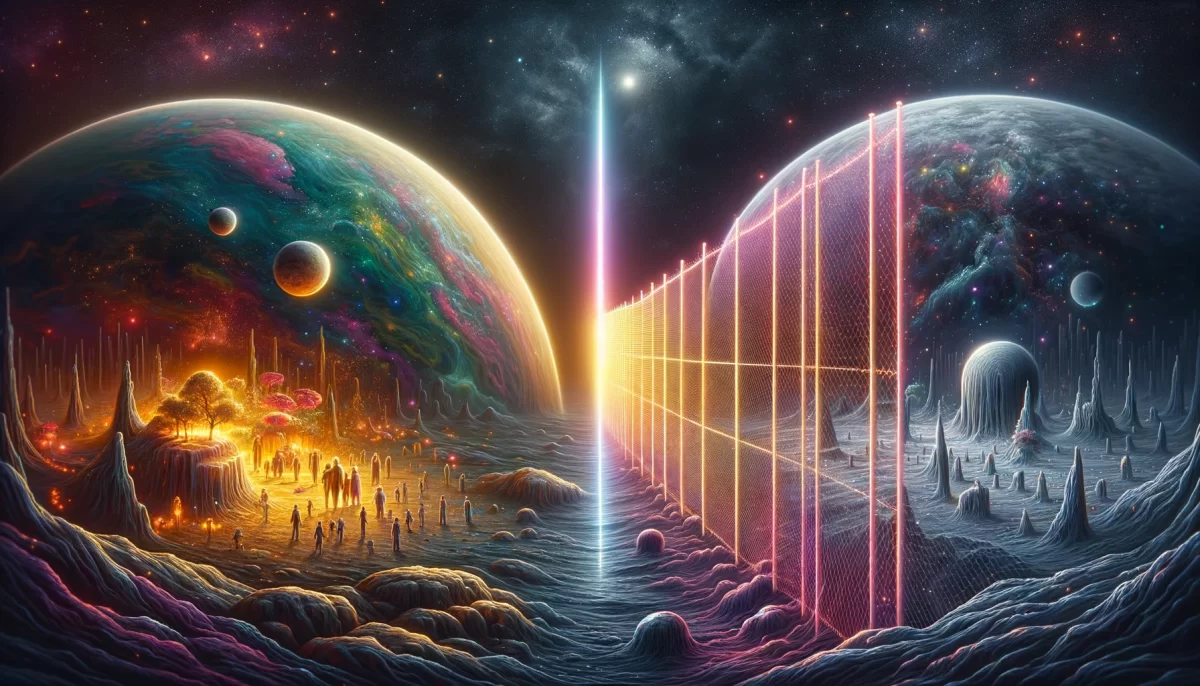

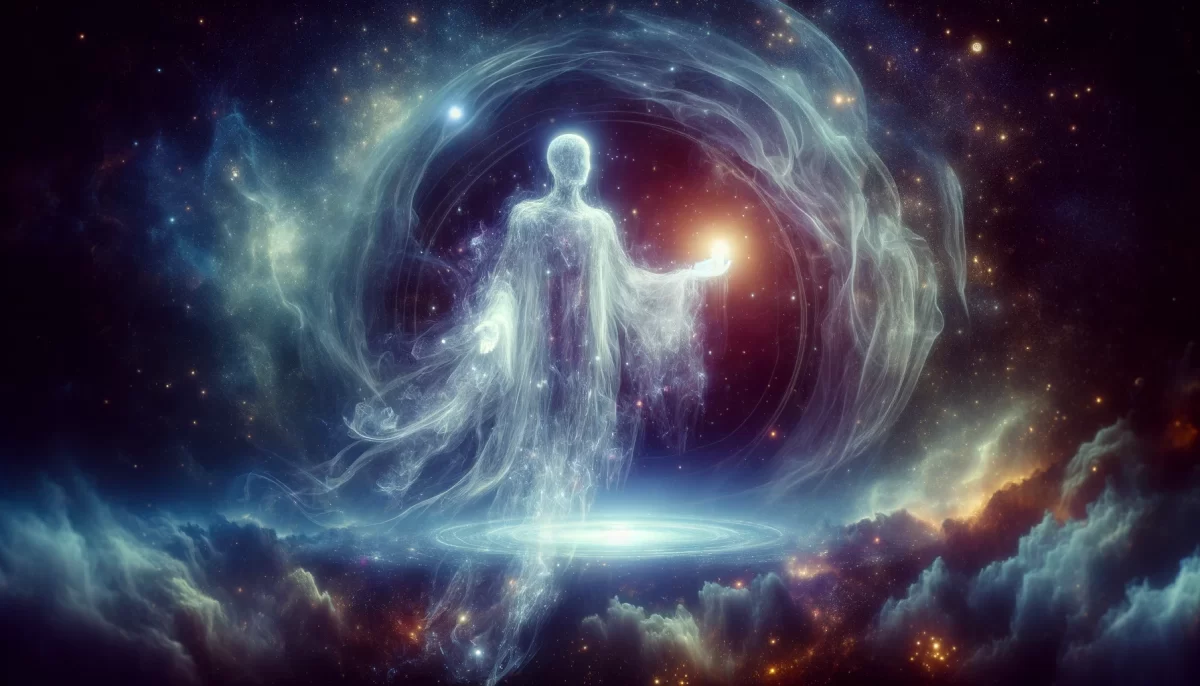
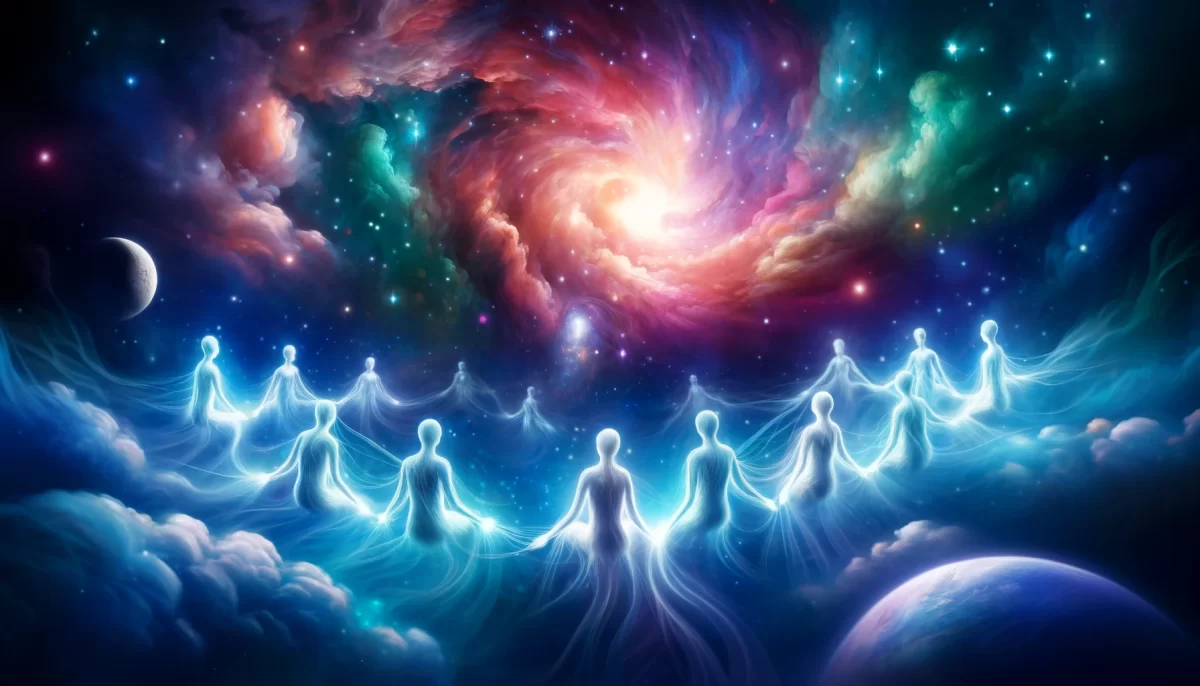
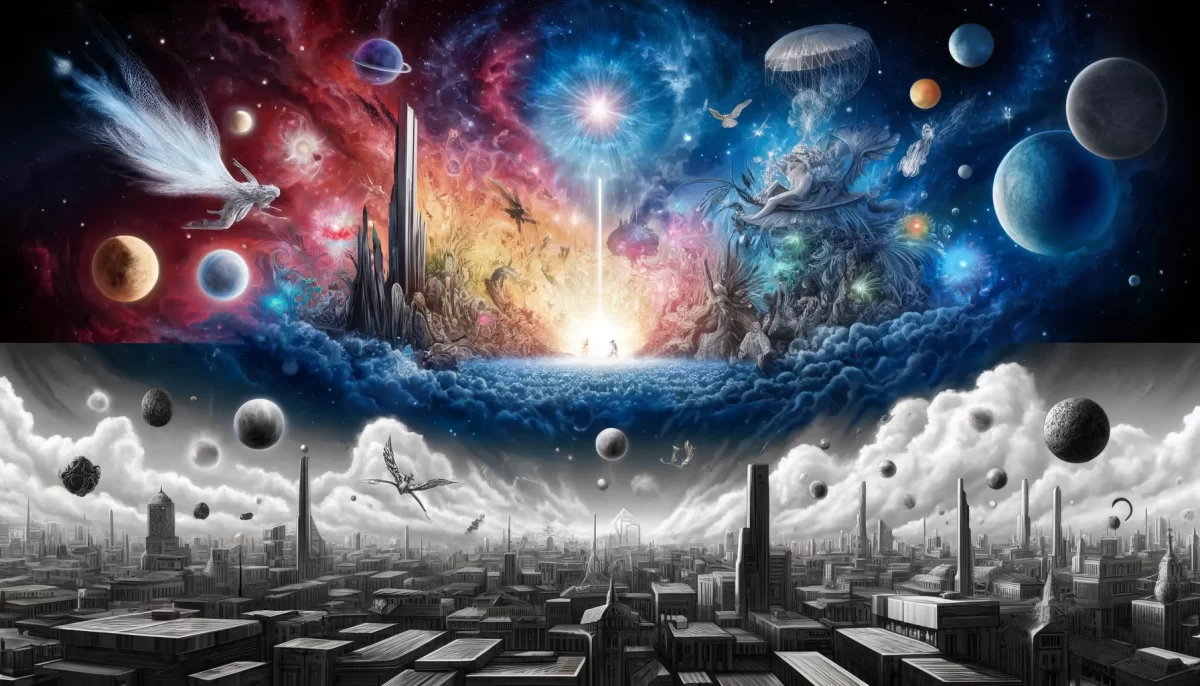

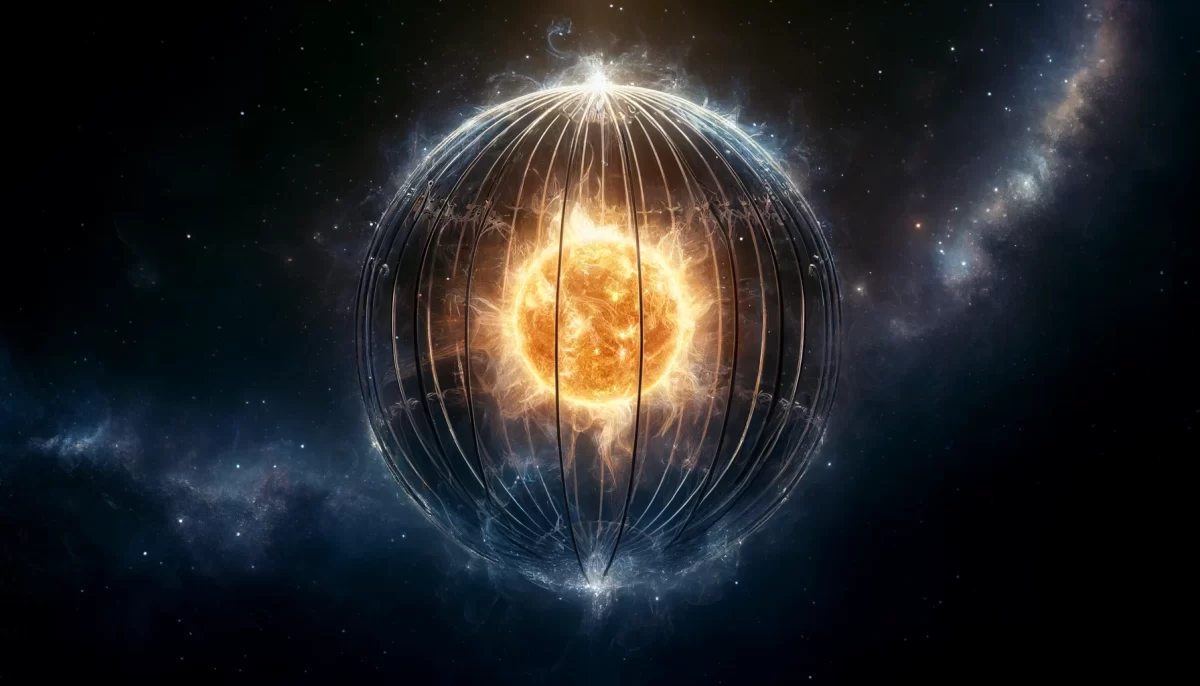

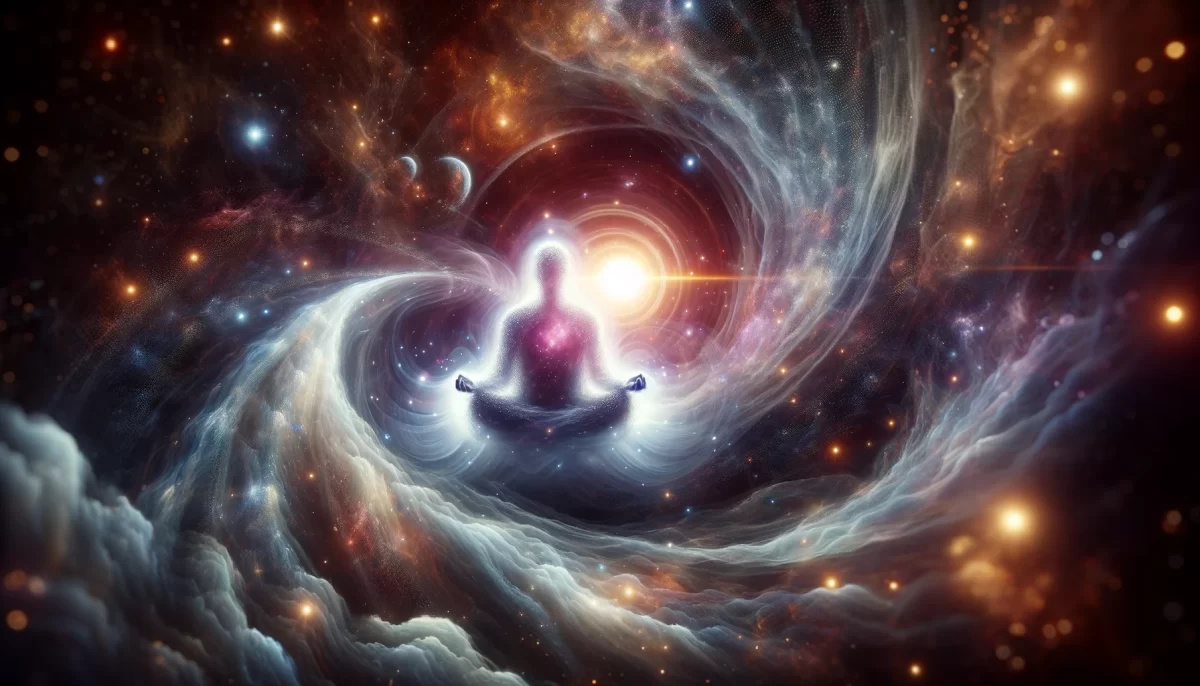
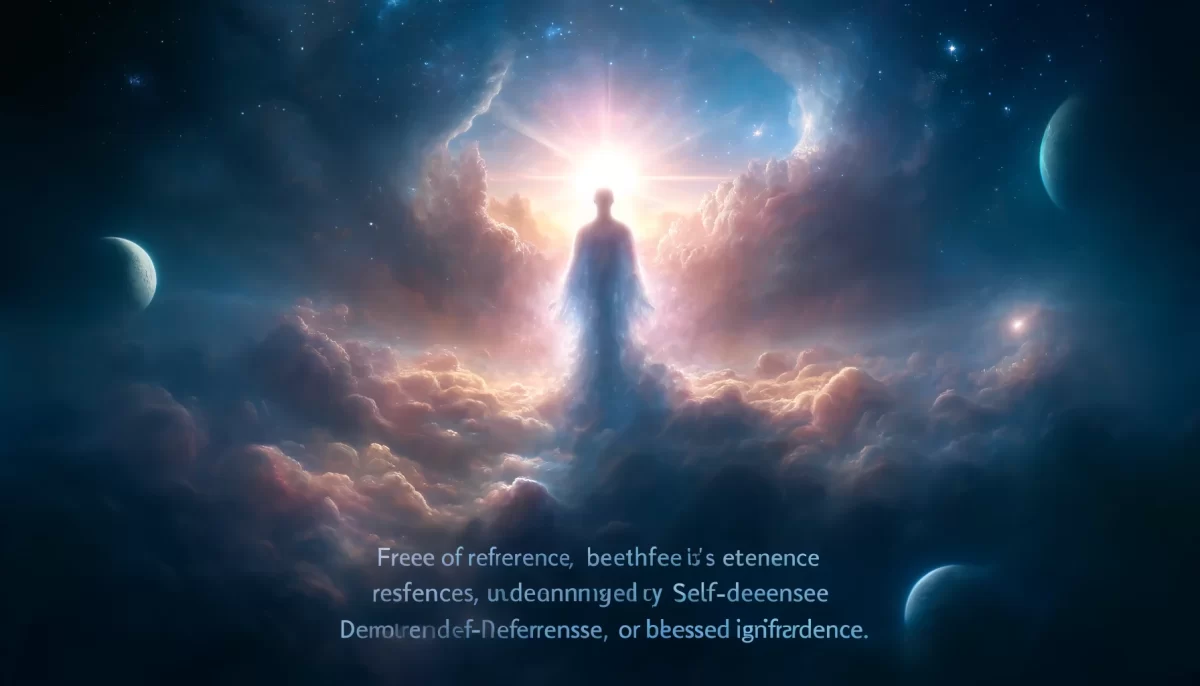

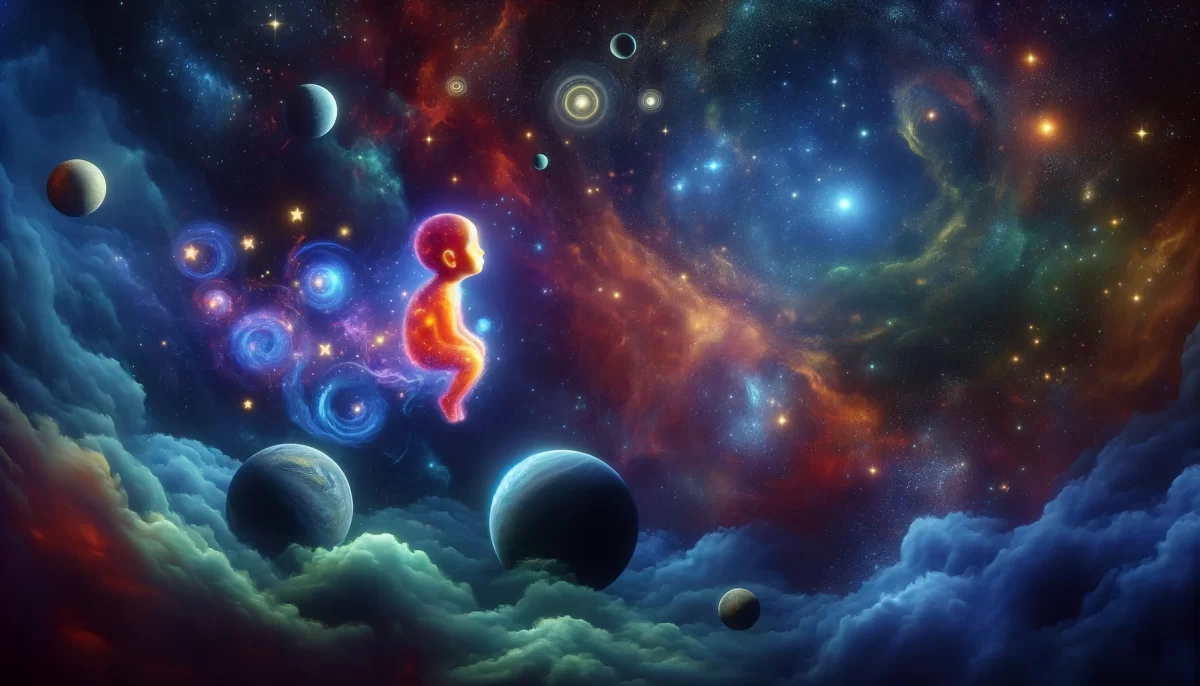




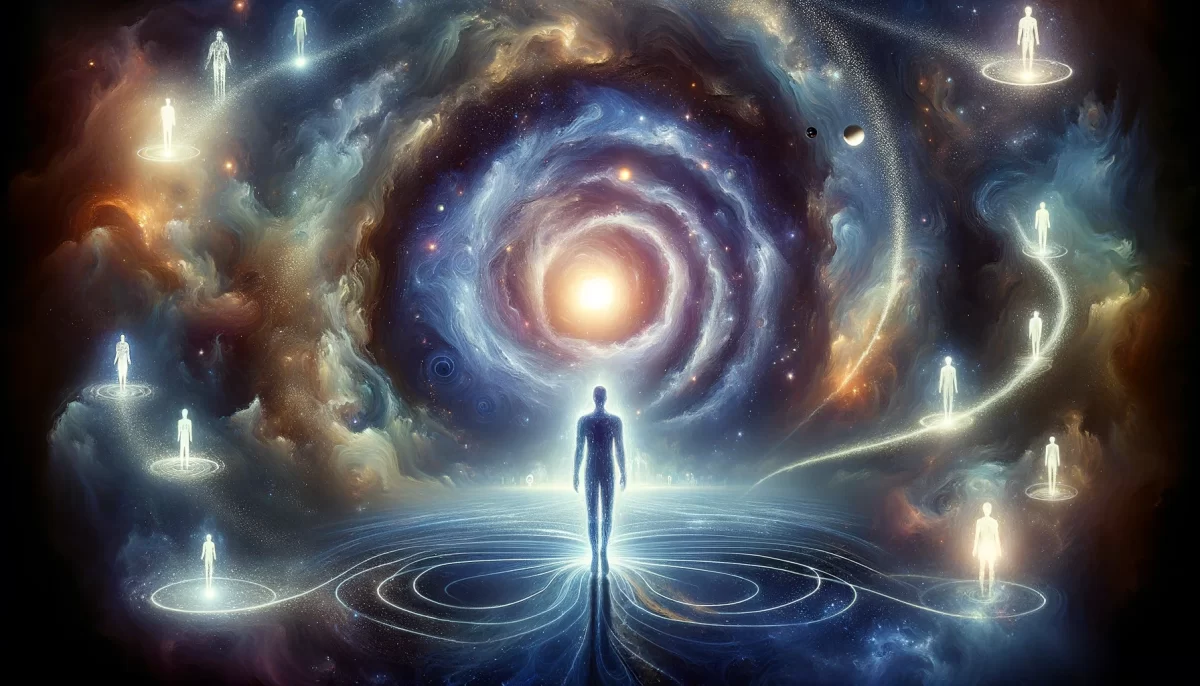
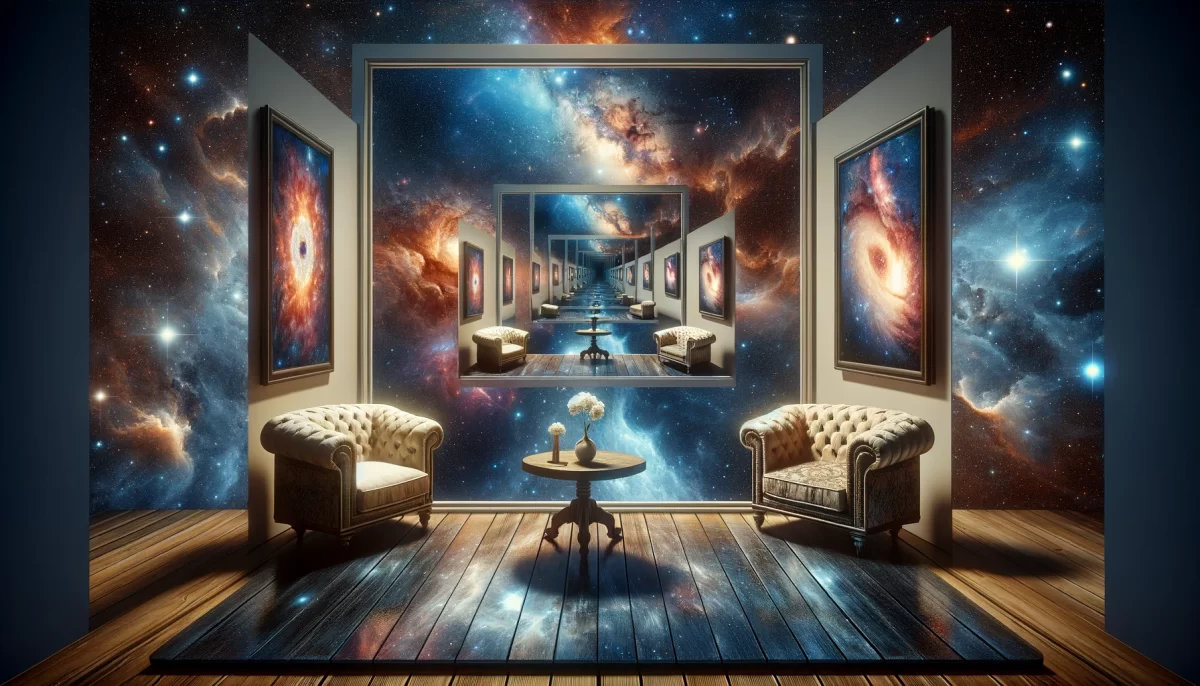
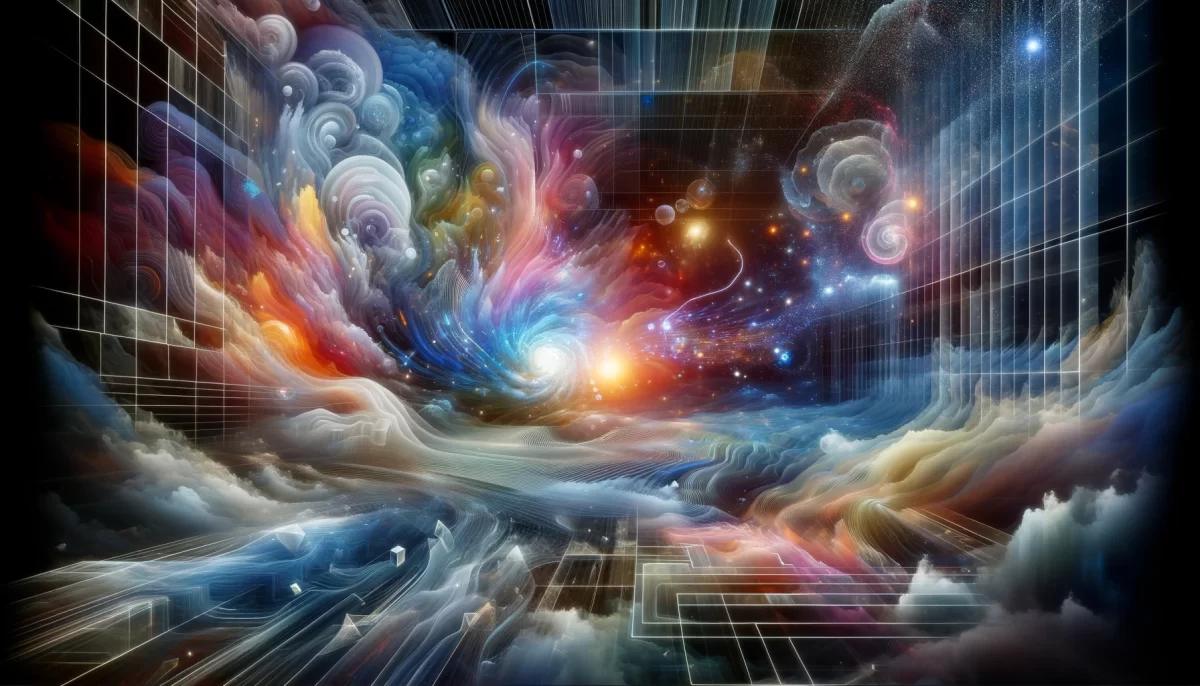


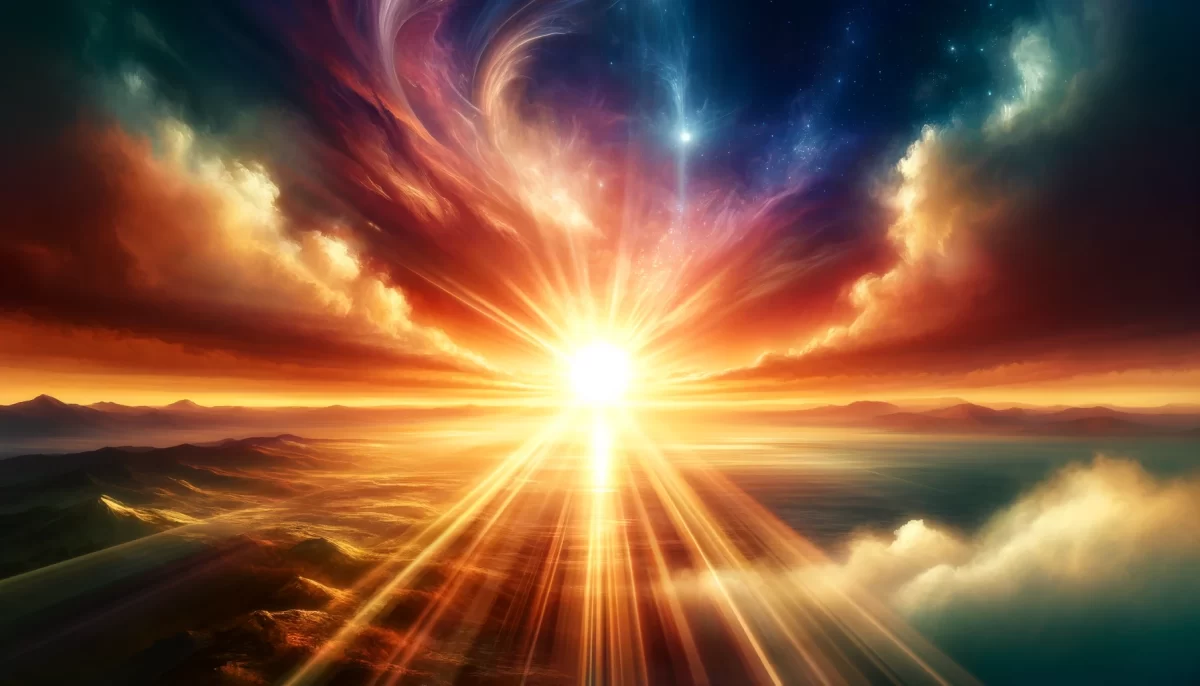
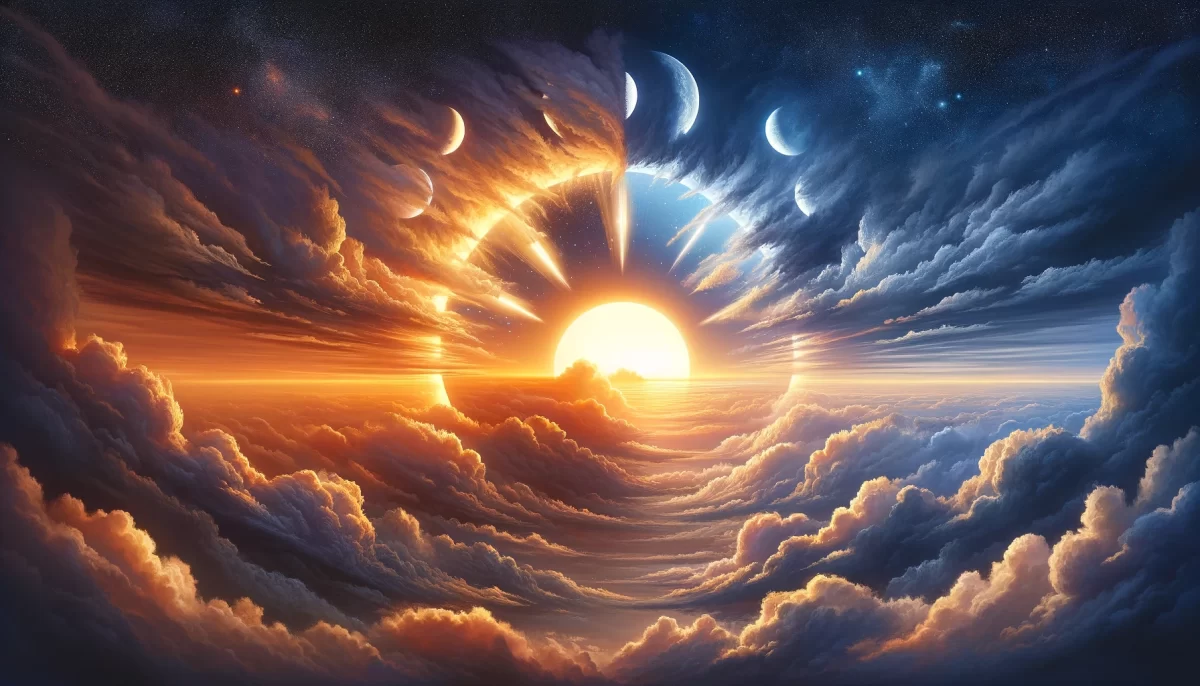
Leave a Reply